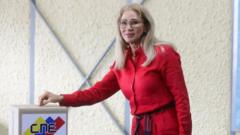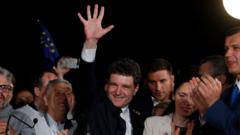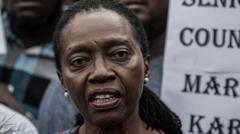Geert Wilders' withdrawal from the governing coalition emphasizes the challenges faced by political leaders navigating increasingly polarized views on immigration.
**Dutch Coalition Government Falls as Far-Right Leader Exits Amid Migration Dispute**

**Dutch Coalition Government Falls as Far-Right Leader Exits Amid Migration Dispute**
The collapse of the Dutch government highlights rising tensions over immigration policy and political volatility in Europe.
The Dutch government has disintegrated following Geert Wilders' withdrawal of his far-right party, the Freedom Party (PVV), from the coalition over contentious migration issues. On Tuesday, Prime Minister Dick Schoof announced his resignation and presented the cabinet’s resignation to King Willem-Alexander. In comments made during an emergency cabinet meeting, Schoof characterized Wilders' exit as "irresponsible and unnecessary," and expressed disappointment that the coalition’s operation, which lasted less than a year, had ended this way.
The rupture arose from disagreements surrounding Wilders' demands for tightening asylum policies, which included a freeze on asylum applications and a stop to the development of reception centers. While Schoof approached coalition leaders for support earlier that day, tensions reached a boiling point within minutes when Wilders departed the meeting, stating, "No signature for our asylum plans. PVV leaves the coalition," on social media platform X.
Political leaders reacted with shock and anger, arguing that many of Wilders' requests mirrored existing policies in the coalition agreement, suggesting that implementation of these proposals would not have encountered significant opposition. Several of Wilders’ additional measures had already been relegated during coalition discussions due to potential legal challenges.
The coalition, born out of extensive negotiations post-2022 elections, initially included the conservative-liberal VVD, the Farmers' Citizen Movement (BBB), and the centrist New Social Contract. It was characterized by widespread infighting and struggles to advance key policies. Following the collapse, coalition members accused Wilders of engineering the crisis, with VVD leader Dilan Yesilgoz labeling his actions as "super irresponsible" and Deputy PM Mona Keijzer from BBB claiming Wilders was "betraying the Netherlands."
In the wake of the political upheaval, Wilders has conveyed ambitions to lead the country and expand the PVV’s influence in the upcoming elections. Despite the immediate economic implications being viewed as minimal, given the government's track record of limited achievements during its tenure, analysts highlight a growing political volatility across Europe revolving around matters of immigration and living costs.
With a NATO summit scheduled in The Hague at month's end, the current ministers are likely to govern in a caretaker role until new elections are arranged, expected in the autumn. Navigating the complexities of Dutch politics, where a governing coalition must comprise a majority in the 150-seat parliament, Wilders' recent actions are viewed as potentially reckless, as they could complicate his party's ability to form alliances moving forward. As he pivots to focus on immigration in his electoral campaign, uncertainty looms about the long-term effects of the coalition's collapse on the political landscape.





















